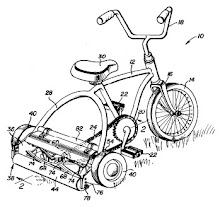I'm a bit of a grid geek. We are having a hot day here in New England and my facebook/google+ stream is drowning in people talking about 100+ degree temperatures. That's the obvious result of the weather. The less obvious result is that electricity demand is currently surging as everyone cranks the air conditioning to stay comfortable. Almost every generation asset in the region is probably running near maximum right now. Since taking Ignacio's grid regulation class, I have recreationally checked the marginal price map from ISO New England. Today is the worst I have ever seen it. LMPs are in the $200/MWh range right now. During last week's mild summer temperatures the region was about $30/MWh.
What does this mean behind the scenes? Suppliers of base load power are cleaning up right now. If you run a cheap coal plant, you get paid the same as the near-decommissioned fuel oil plant that they crash fired yesterday. If they didn't have long-term power supply hedges, utilities would be losing money like crazy. As a residential customer, NSTAR charges me 7.7 cents/kWh to buy electricity and they could be paying 20 cents right now. Our independent system operator is no doubt going crazy to make sure that all the reliability constraints are being met. EnerNOC is probably calling industrial consumers all over the region and asking them to curtail their electrical load. This is all heroic effort to make sure that we all stay comfortable and cool on an otherwise ugly day.
What does this mean for me, the consumer? Very little. I pay the same rate regardless of heroic effort. Who cares about power balancing, marginal prices, or what the generators had to do in order to get me the electricity? Turn it up and let it rip!
This is an insane way to run a market. Would you act any differently if you knew that your electricity cost was going to be 4x higher today? Personally, I'd be swimming in a lake.



